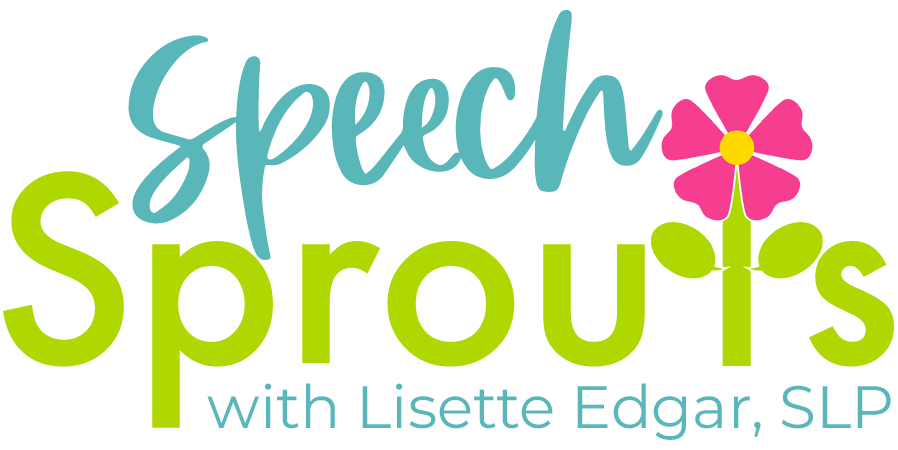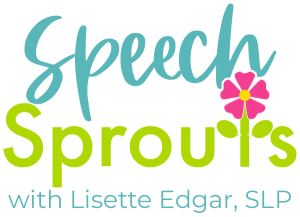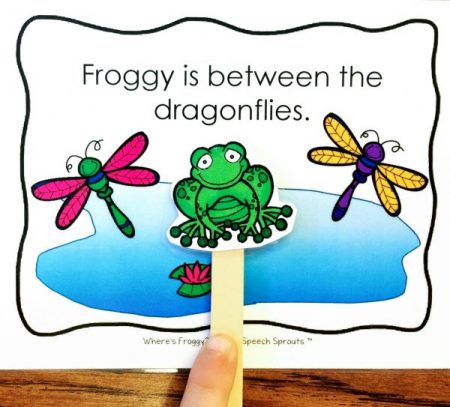
SLPs- How to Team Up For Success. Making your Work Life Easier and Happier.
Team relationships are critical for SLPs (and everyone else) at work.
The Frenzied SLPs are talking about team-building this week, and I am linking up with them on this important topic.
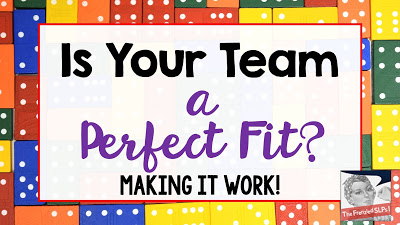 |
| How SLPs Can Build Awesome Team Relationships |
You see your co-workers every day, often more than your best friends and family. These are people that can make your work life happier and easier if you build great relationships. A rocky relationship can make you dread going to work, feeling grouchy and alone.
What are the keys to successful team relationships when you are the supervisor?
This year I have added a speech pathology assistant and a paraprofessional to my team. I am happy to say, it’s going great. These tips are also valuable for many other team relationships as well. Here’s what works for us.
Offer respect and acknowledgment.
Everyone wants to feel their contributions are valued. I think this is the most important of all. Let your co-worker know when you appreciate something they have done. Acknowledge their ideas, and encourage them to run with them if it fits with what you need to accomplish. You have great ideas, I bet they do too.
You will likely be amazed at how fresh ideas perk things up in your therapy room, and your co-workers will get to take pride and feel invested in your activities and practice. My para suggested we paint pumpkins with our preschoolers and it went beautifully with targeting initial /p/ and language skills.
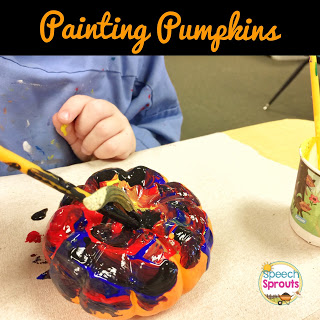 |
| Painting Pumpkins for Initial /p/ |
Be clear about expectations and duties.
Talk about it, better yet write it out at the beginning. This can avoid misunderstandings and hard feelings. No-one wants to be “called out” on something they weren’t clear on.
Explain what you are trying to accomplish, and why.
It can be frustrating and confusing to be asked to do certain things when you don’t understand the end goal or big picture. We need to feel invested in a worthy goal to give our best, be cooperative and be cheerful about it! I like to explain the “why” when I give a task or direction to my co-workers.
Why is it super important for my student with apraxia to repeat a stimulus word 25 times? Give a mini-explanation of block practice and motor-learning theory. (See more about CAS HERE). Why do I speak in such direct, short sentences to my non-verbal student with autism, when I give directives? Why should your co-worker talk less and show more too? A brief overview of language processing difficulties can help with understanding and carry-over of this strategy.
Pitch in and help.
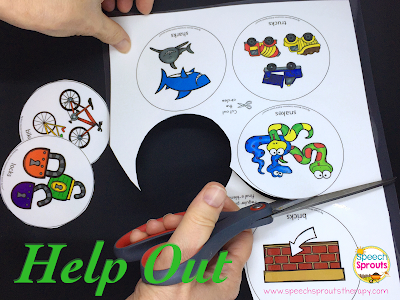 |
| Articulation Cards for Go Away Green Monster Book Companion |
Get to know each other as a person.
 What does your co-worker enjoy? What are they proud of? Ask about their family. People will respond much better to you if they feel you really “see” them as a person and are interested on a personal level. It builds trust and you will likely enjoy your time together much more too!
What does your co-worker enjoy? What are they proud of? Ask about their family. People will respond much better to you if they feel you really “see” them as a person and are interested on a personal level. It builds trust and you will likely enjoy your time together much more too!
Be sure to check out more great posts on this topic by my blogger buddies in the Frenzied SLPs.
Just click the links below.
Until next time!
Share it:
- Read more about: Uncategorized
